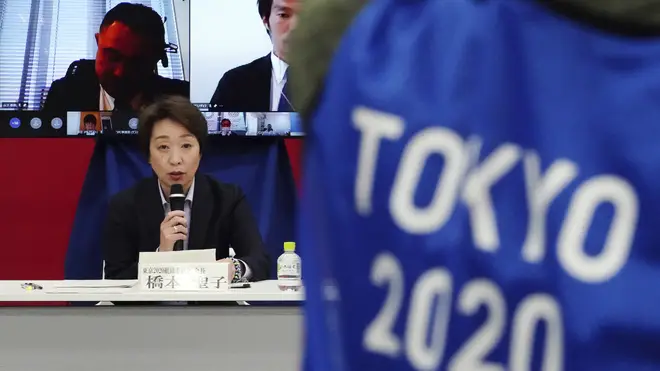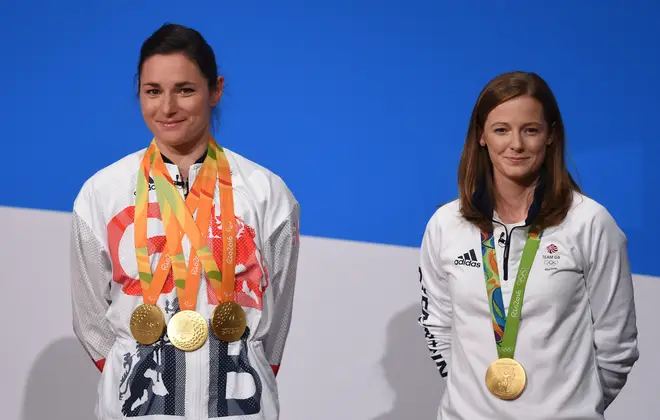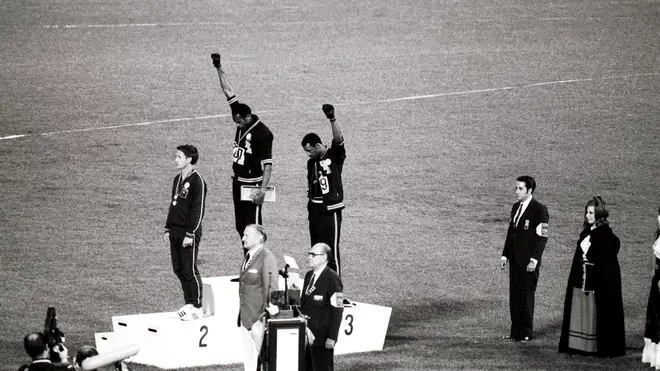
Ben Kentish 7am - 10am
22 April 2021, 11:12 | Updated: 22 April 2021, 11:26

Taking the knee for Black Lives Matter will be banned at the Tokyo Olympics due to rules on "racial propaganda".
The Games' ruling body has agreed that Rule 50, which forbids any kind of "demonstration or political, religious or racial propaganda" in Olympic areas, should be maintained.
The decision was made after talks were held between the International Olympic Committee and athletes, in addition to a survey of competitors from 185 countries which found the majority opposed expressing political views.
READ MORE: New date announced for postponed Tokyo Olympics
Athletes' Commission chair Kirsty Coventry said: "A very clear majority of athletes said that it's not appropriate to demonstrate or express their views on the field of play, at the official ceremonies, or on the podium, and so our recommendation is to preserve (those places) from any kind of protests and demonstrations or acts perceived as such."
A total of 3,547 athletes representing from 41 sports responded to the survey, as part of a 10-month consultation process initiated by the widespread social and racial justice movements in the United States.

Ms Coventry said the recommendation - which IOC President Bach confirmed had been "unanimously approved" - would now be passed to the IOC's legal affairs commission in order to consider the range of potential sanctions against those who fail to adhere to the rule.
READ MORE: International fans barred from Tokyo 2021 Olympics due to pandemic
Coventry added: "We are asking the legal affairs commission to come up with a proportionate range of different sanctions, so that everyone knows going into a Games what they can and can't do. It's up to (them) to give the Athletes' Commission guidance on proportionality."
But many sports team, including major football clubs, have recently adopted taking the knee in the wake of the Black Lives Matter movement, following the murder of George Floyd in the US.
The Games have a history with political activist too, with two African-American gold and bronze medallists, Tommie Smith and John Carlos, raising their fists in a Black Power salute in 1968.
In 1972, US athlete Jackie Robinson refused to stand and sing the anthem, saying he felt he was "a black man in a white world".

A British Olympic Association spokesperson said it would work closely with Team GB athletes to establish appropriate means to express themselves in ways which would not be in contravention of the reinforced guidelines.
The spokesperson said: "We are appreciative of the broad, global consultation that took place through the IOC's Athletes' Commission and that British athletes were given the opportunity to engage through both the consultation and the IOC survey.
"We understand that the survey showed overwhelming global support for maintaining the existing rule about political protests whilst providing increased clarity for athletes and fostering new opportunities for expression elsewhere.
"As we have recently reiterated, we also strongly believe that sport and politics should continue to remain separate. However, we also support the desire of athletes to be advocates for causes about which they feel strongly. We will work with our own Athletes' Commission to find a way to make this work for all parties."